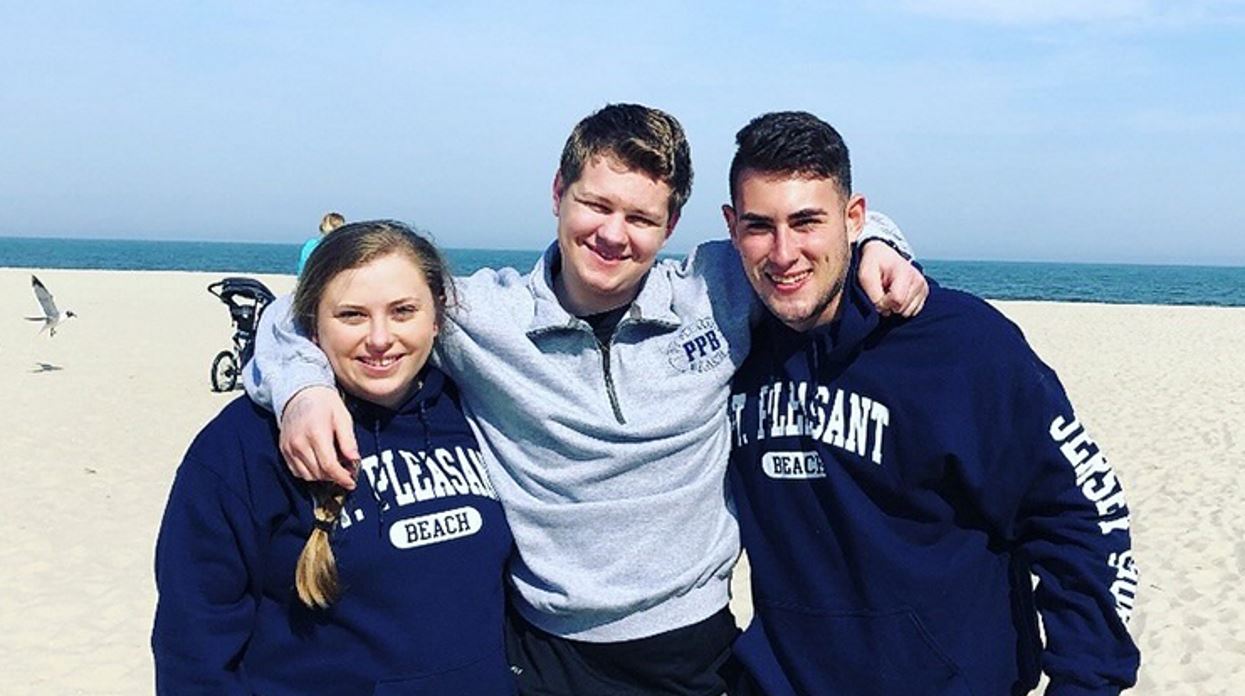
The Importance of Connection in Rehabilitation: Physical Therapy in the Eyes of Student Michael Peysakhov

Michael Peysakhov, DPT ’23, was inspired to the career path through certain life experiences. Today, he uses a personal touch in his care.
Michael Peysakhov, MCPHS ’23 candidate for a Doctorate in Physical Therapy (DPT), vicariously learned the benefits of physical therapy from a young age. His mother, who broke both her knee and ankle in an accident, went to physical therapy throughout his childhood. Witnessing her rehabilitation inspired his interest in the medical field, but it wasn’t until another tragedy struck later in life that his calling as a physical therapist became clear.
Michael was at Kean University—where he later earned his Bachelor of Science in Biology (Health Professions Track)—when he saw a photo on social media of his friend, Mick, on a stretcher. Upon reaching out to his friend’s father, he learned that Mick had suffered a serious injury and was thought to be paralyzed: during an ice hockey game, Mick had hit his head on an opponent’s knee, a collision that snapped his neck back and broke his C5 spinal vertebrae. The seventeen-year-old hockey player was air-lifted to Robert Wood Johnson University Hospital, an acute care hospital in New Jersey, where he underwent immediate surgery and stayed for about two weeks. It was serendipitous that the hockey game had brought Missouri-native Mick to Michael’s home state of New Jersey. When he heard about Mick’s accident, Michael immediately set out to visit him at the acute care hospital. During that time, Michael and his girlfriend, Amber Wright—now also a ’23 DPT candidate at MCPHS—spent time with Mick in his hospital room and shuttled many friends of Mick’s to and from the airport.
Michael continued to visit his friend when Mick was transferred to the Kessler Institute for Rehabilitation in New Jersey. He says they celebrated a lot of milestones there, such as Mick’s 18th birthday and a surprise visit from his long-distance girlfriend, which Michael and Amber helped coordinate. In addition to social visits, Michael also accompanied Mick through physical therapy, occupational therapy, and speech therapy. “I was part of his rehab process...from an emotional standpoint and [as a] support system,” says Michael. “And from that point I kind of knew that I wanted to go into PT.” Michael says he became so fascinated by the therapists at the hospital that he took up a job with them as a rehabilitation aide after graduating from Kean.
At Kessler, Michael worked in the COVID-19 unit prior to enrolling at MCPHS in September 2020. He appreciated that his role gave him an opportunity to be there for patients whose families could not be with them due to the hospital’s pandemic restrictions. He showed so much compassion, spending extra time with patients to talk with them and help them set up video calls with their families—even after his shift—that they often specially requested him as their aide. Michael meant so much to one patient with dementia that he sometimes confused Michael with his son, and upon the patient’s discharge, asked Michael to walk him out. The patient’s actual son gave Michael a notecard, thanking him for all he did for their family. “Anytime I feel overwhelmed or anything, I look at the notecard and it reminds me that what I’m doing is definitely going to be worth it in the end,” says Michael. He believes that having a connection with patients is a critical component of being a physical therapist, because the feeling of support is a significant motivating factor for patients.
Michael says that his experience supporting his friend taught him a lot about being a healthcare professional. “Looking back at it, I’ve learned a lot of life lessons about myself and about the whole situation, as well as how to be there for someone,” he says. Years later, Michael says Mick is continuing with outpatient physical therapy, which he receives pro bono at his university’s clinic. Mick and his father are advocates for spinal cord injury (SCI) awareness and founded BeStrong29 Foundation, which raises money to support those affected by SCI and physical or occupational therapy students looking to specialize in SCI. Michael says that Mick is his motivation and the strongest person he knows. “Just to see his work ethic, and the way that PT did wonders for him...I want to do that for someone else one day.”
More University News
MCPHS 2025: A Year in Photos
Our photos from 2025 show connection, community, and celebration.
This is MCPHS: ‘It’s Really Motivating When You Find the Thing That’s Right for You’
Health Sciences major Emma Borkosky shares her thoughts on getting involved on campus and the formative experiences that shaped her journey into occupational therapy.
Diagnosis on Day One: Inside a PA Student’s Clinical Rotation Experience
During the final year of her education, physician assistant studies student Emily Brenman is putting her knowledge to the test as she treats patients for the first time.
Public Health Alum Tackles Aging with a Fresh Perspective
Anni Wang is focusing her public health education on the aging population, searching for activities that improve and prevent chronic conditions among older adults.

